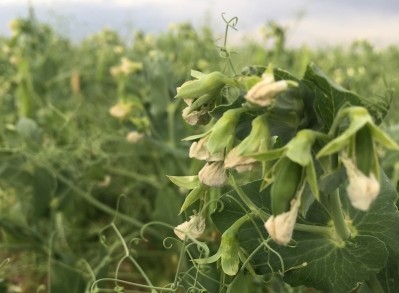From the editor's desk
There’s a lot of ground to cover at trade show without getting bogged down in COVID-19 crisis

It’s always a danger in the news reporting game to get overly embroiled in the hot topic of the moment. It’s one of the pitfalls which can lead to the ‘herd’ reporting mentality that can afflict the news media.
In a way, it’s not so different to how product development trends tend to play out in the dietary supplement industry. Competitor X just launched a Y product! A lot of people are talking about it! We’d better get us one, too! And in short order, there are 20 new SKUs in a given product category. Are consumers better served as a result?
In news game it’s a similar story. Competitor X had a story about Y! We’d better do one, too! The 24-news cycle helps these ideas to proliferate to the point where it seems as if everyone is talking about just one thing.
Putting COVID-19 in perspective
So in this way, COVID-19 has come to dominate the news. I’m not trying to lessen people’s humanitarian concerns. The mortality rate of COVID-19 is undetermined, but what is established is that has the potential to infect large swathes of the world’s population. So even a low rate of mortality will result in many fatalities. And the fact of that low mortality rate will be cold comfort to those few who are fatally stricken. But to put it into perspective, the common flu virus will kill many more people in the US this year than will COVID-19.
One of the sources I’ll talk to at Expo West, a supplier who sources ingredients from China as well as elsewhere, was relieved to find that I wanted to talk about something other COVID-19. He’s been on the phone pretty much nonstop answering those sorts of questions from customers once the magnitude of the issue became clear.
How many people will ultimately become infected in the US? How many will die? Who can say? But once again, by way of providing perspective, Pew Research states that in 2017, the last year for which reliable statistics were available, more than 39,000 people were killed in the US by handguns, either as a result of suicide or shooting by someone else. And, according the Centers for Disease Control, more than 67,000 people died from drug overdoses in the US in 2018. That’s more than 100,000 people killed annually by preventible things that most Americans have now come to take for granted.
COVID-19, however it plays out in this country, won’t come anywhere close to those figures. In coming years I believe post mortems will show that many things done during this crisis were overreactions and were ultimately ineffective.
Making sure other news gets proper attention
COVID-19 will of course be a hot topic at the show. Show organizers have already suggested that fist bumps or waves be substituted for handshakes. Additional hand sanitizer stations will be installed, and the cleaning schedule has been ramped up in some of the more public spaces on the grounds.
So, while we can’t ignore COVID-19, our reporting won’t be dominated by it either. There are other, more long-term issues in the market. One is the future of the botanicals trade in this era of climate change and population growth. How will supplies be secured while habitats shrink either because of local microclimate shifts or because of increasing population pressure?
Another issue we’ll follow is how manufactures are meeting the continually increasing demand for protein, What are the new forms? How have they solved the ‘thick as a brick’ phenomenon, that leaves you wondering whether to try to eat that high protein bar or use it as a spacer when you build your deck out back?
And how is the accelerating trend toward personalized nutrition changing the market? And what about the changing face of retail itself? Are brands with an outdated strategy for online engagement now in danger of quick extinction?
COVID-19 will come and go, much as did the SARS and MERS epidemics before it and other hot topics, such as the fuel shortages in the 1970s when waiting in a long line to get a tankful of gasoline had become a fact of life for many Americans. In all of these cases, it seemed in those times that there was nothing else of even remotely the same importance. But the ideas I mentioned above will continue to be of importance in the dietary supplement industry long after COVID-19 has become a historical footnote.















